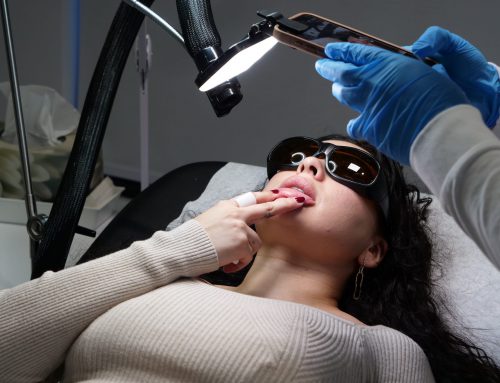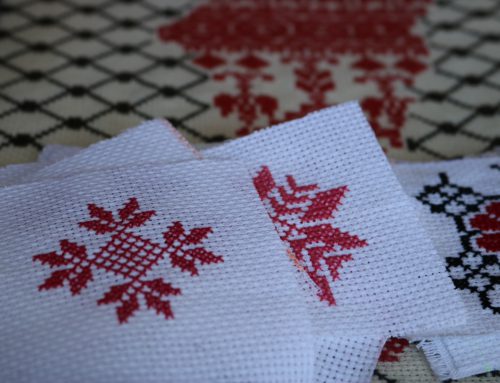BY Enya Leger & Elyette Levy
Acupuncture treatments have helped ease Maria Ricci’s chronic inflammation and pain from a lower back injury she suffered after slipping on the front steps of her home.
“The procedure is painful, but it’s incredible how you feel the energy flowing through your body,” says Ricci. “The heat moves and hits different nerves that can make you giggle or cry, and when it hits your painful area it feels sort of like a toothache.”
Ricci feels exhausted after her visits with her acupuncturist, but nothing will stop her from achieving her goals.
“I want to live to 100 and not ever need to take medication,” says Ricci. “After a few acupuncture treatments I feel like I could run a marathon.”
Acupuncture involves needles inserted into specific points of the body to relieve pain and discomfort. It is one form of alternative medicine that has been gaining recent popularity in Montreal.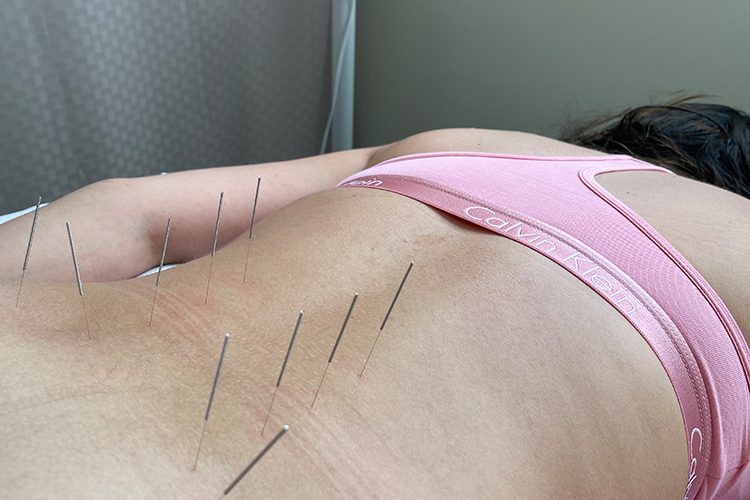
Madison Beauchamp receives an acupuncture treatment at Dr. Lai & Associes in Saint-Eustache. Photo courtesy of Maria Ricci.
Even before her fall, Ricci had been using natural medicine for many years. She would consume naturopathic shakes, cellular reconstruction liquids, probiotics and vitamins.
Aside from acupuncture, there are many other forms of what can be considered alternative medicine. Naturopathy is one example.
Naturopathy is rooted in folk medicine, and has been used for centuries as a way to promote self-healing in patients, originating in Europe. Some naturopaths claim that the ancient Greek physician, Hippocrates, was the first to introduce the concept of natural healing.
There are many types of naturopathic treatments, but they typically include the use of supplements, teas, and oils, made from natural products.
Herbothèque is a naturopathic institute, specializing in integrative herbalism and traditional medicine. It was the first school of herbalism in Québec, founded by Danièle Laberge in 1991.
As a branch of naturopathy, herbalism uses herbs, flowers, leaves or other plants to promote health in patients.
Laberge, along with other herbalists in North America, master their trade through the teachings of traditional healing practices by Indigenous peoples.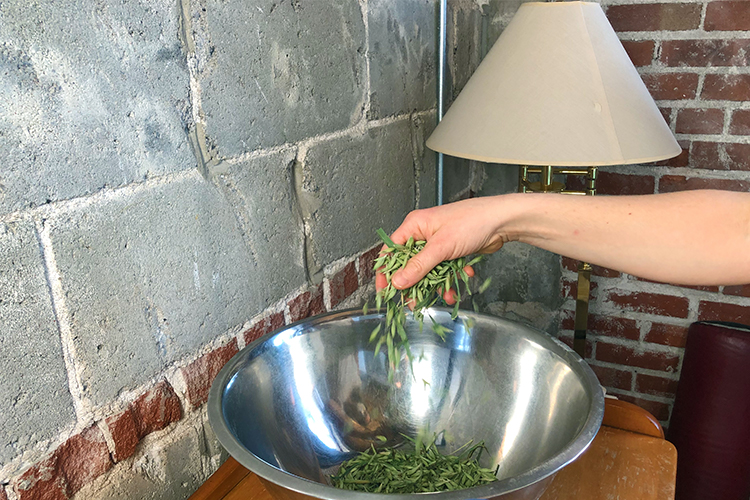
Herbalist Heather Elliott prepares a medicinal herbal blend. Photo by Elyette Levy.
Herbalist Heather Elliott works for the organization, and has noticed a recent increased interest in her services.
“We work really well as more of a long-term system of support, less in the acute response like in Western medicine, and in my practice I really focus on returning the body to balance,” says Elliott. “I think with the pandemic came a call of awareness to people to take care of their health.”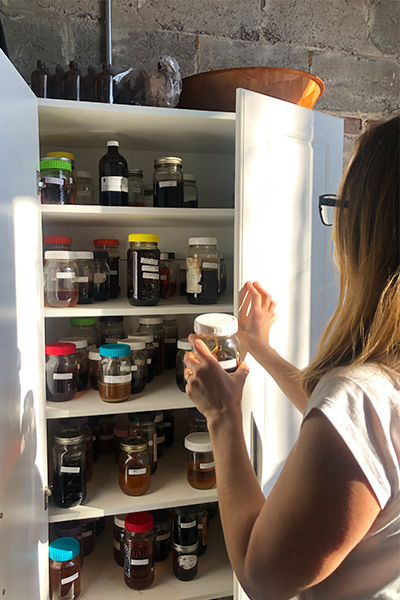
Elliott reaches into the cupboard where she keeps the herbal tinctures and vinegars she has prepared. Photo by Elyette Levy.
Herbalists don’t only learn about the various uses of plants, they also focus on the cultural and spiritual properties of the specimens.
“I believe plants are living beings who we can engage with, and have relationships with, which really differs from biomedicine where they’re seen as compounds of active principles,” says Elliott.
With an increase in patients, the public seems to be enjoying this elementary approach to managing their wellbeing.
“Herbalism is the oldest form of medicine. It has centuries, if not millennia of empirical use and date backing up its ongoing use. For me, it would be a real form of disrespect toward our ancestors not to value what they have so carefully passed on through the generations, ensuring that the rich body of knowledge is maintained,” says Elliott.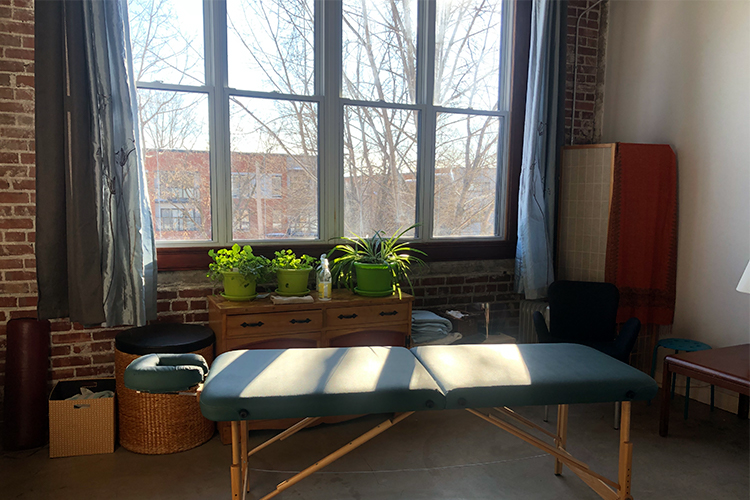
Elliott grows some of her own medicinal herbs at her naturopathic clinic, the space where she meets with clients. Photo by Elyette Levy.
While many forms of alternative medicine are gaining popularity in North America, others, including traditional Chinese medicine, are dwindling.
Dr. Rong Yanping graduated from the Beijing University of Chinese Medicine in 1997, opening Clinique AcuHerbe in Montreal in 2016.
The move to North America came with its challenges.
Traditional Chinese medicine is a declining practice in Montreal. Video by Elyette Levy.
Maybe, with a rise in other forms of naturopathy such as herbalism, traditional Chinese medicine will find its way into the wellness movements taking shape in North America.
Although alternative medicine is becoming popular, many people believe that needles, pills, and herbs can never replace scientific research.
“Science is really the basis of everything we do,” says Dr. Armand Aalamian, a family doctor for over 30 years. “Our religion is science, and it is important that medicine be based on this principle.”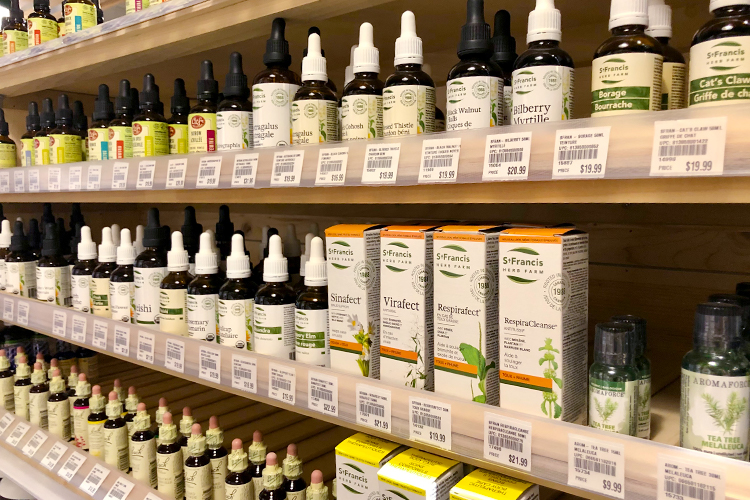
Natural health products on sale at Aliments Naturels Fleur Sauvage on Monkland Ave. Photo by Enya Leger.
He says that naturopaths, or any other alternative medicine practitioners, are simply not doctors.
“You cannot say you’re a family doctor or a medical specialist, and then say that you want to prescribe herbs and naturopathic products,” says Aalamian. “We have a very strong definition of what the practice of medicine entails, and you cannot use your license to do something outside of that practice such as acupuncture.”
Learn a few things about natural health products in Canada. Media by Enya Leger.

